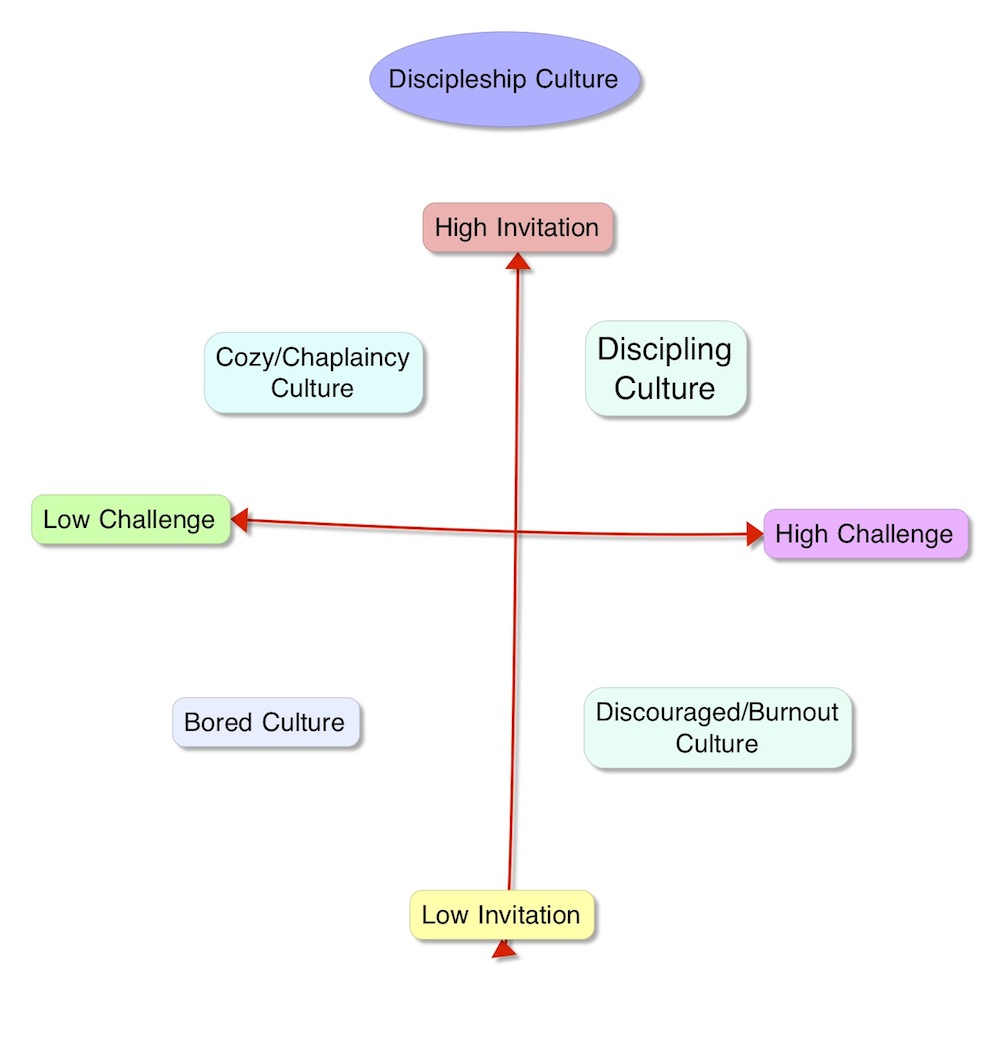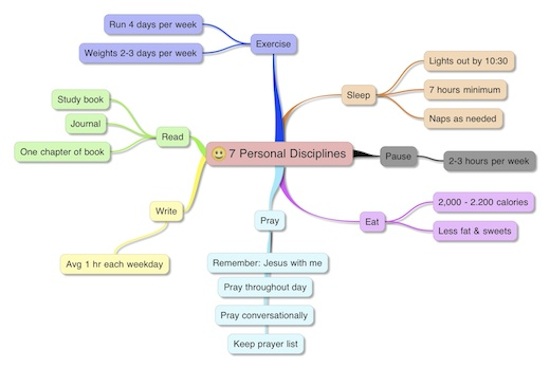In my LAST POST, I introduced the concept of a discipling culture being high invitation and high challenge. I believe this is the example Jesus set for us. (Read the previous post for further explanation.) In John 8, for example, Jesus said to the woman caught in adultery, “He who is without sin cast the first stone” and “Neither do I condemn you.” That’s high invitation. Who doesn’t want to hear that? Jesus also said, however, “go and sin no more”. That’s high challenge. Who can live up to that?
One way this concept has shaped my teaching is to strive for every message to be high invitation, but also high challenge. I want my messages to be easy to listen to and enjoyable, helpful and applicable; even funny at moments (high invitation), but I also want each message to encourage disciplined personal growth and discipleship; helping people identify areas of their life where they need to change or improve to be more like Christ. (high challenge).
Please understand, I’m not an expert at this, nor do I hit a home run every week, but it’s a goal that I believe is making me better as I strive to meet it.
Some may wonder: How do you know if you’re reaching your target?
Well, I’ve been thinking about this for several months and I’m not sure that I can always know. It’s obviously very subjective. One thing I have started thinking through, however, and this is a developing concept for me, is that I can often evaluate the tension of being high invitation and high challenge by examining the feedback I receive from messages.
Here’s what I mean:
When a message is especially high invitation, I’ll receive lots of positive feedback…usually very public. People say “great sermon” in the hallway on the way out of the building, they post on my Facebook or they tell Cheryl how much they “enjoyed” my message. I love and need this type of feedback, because it encourages me.
When a message is high invitation AND high challenge, I’ll equally receive an increased amount of feedback…but some of it will be very private. I’ve learned that people seldom go “public” with the heart-wrenching stories of confession…at least at first. Let me be clear that I believe the ultimate goal of teaching is to point people to Christ and encourage them to be like Him. When I do this with equally high invitation and challenge, not only will I get public recognition, I’ll also get emails, whispers in the hall, or hear about it weeks later in a private setting. I’ll hear stories of repeated sins, struggles in a marriage, or hidden pain in a person’s life.
I developed a phrase I use to help me think through the effectiveness of a message in this area of high invitation/high challenge:
Personal Recognition vs. Private Correspondence
When a message is both high invitation and high challenge, it appears I am more likely to receive both types of feedback. Obviously, some weeks there will be more feedback than other weeks and I never preach seeking either type feedback. Some topics are more likely to produce private correspondence. I also know that just because I don’t receive feedback one week doesn’t mean I didn’t offer a challenging message. When I am receiving this private correspondence, however, in addition to the personal recognition, it seems more obvious to me that my messages are stirring people’s hearts to action and life change. (high challenge)
Does this make sense? This is one of those concepts that’s clear for me to think about than it is for me to write about or describe. I expect some push back about this topic and I welcome it. I just know it has been helpful for me to consider this issue as I have evaluated my teaching over the last few months. Feel free to dialogue with me about this concept of personal recognition versus private correspondence.







 Logging you in...
Logging you in...
 Loading IntenseDebate Comments...
Loading IntenseDebate Comments...
1986 omega tribe
For those who read comments, I think we see some of this illustrated when Nicodemus approach Jesus at night…in private…in John 3. Jesus hadn't just been attracting the masses…He had been stirring the hearts.
Hey Ron, As far as the personal/private recognition goes…I find that many pastors struggle with what I call believing their own myth. The myth is when we believe all the good things folks are saying to us about our insightfully great messages. The lie we buy is that we are the source of the knowledge and wisdom…when it is God who deserves that recognition, not us. I don't think the average church member/attender has a clue what a struggle that can be for a Pastor, especially one who is emotionally, physically, and spiritually exhausted. And way too many are just that!
Of course Pastors want to be effective in communicating the gospel to those listening…however, we cannot keep score by how many positive comments (or any response) we receive after the sermon. If we do this, we will become a slave to the crowd…seeking to please men instead of God. We are responsible for following the call and preaching the word, not the response of the listeners or the results.
I think you really hit the nail on the head by striving to be like Jesus…high invitation and high challenge in your teaching/preaching. If we simply do what we know to do…what we are called to do, and leave the results to God, we will be much better off than trying to keep score with our own (or someone else's) standards.
Thanks for sharing…
Thanks Keith. YOU hit the nail on the head with your comment. This is exactly what I was addressing.